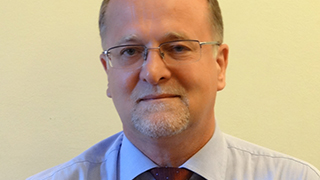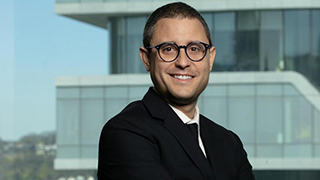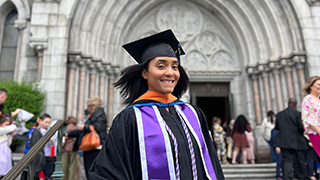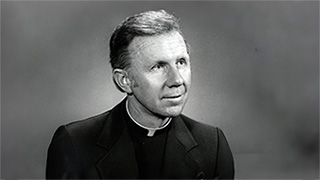Ambassador László Molnár Joins School of Diplomacy - Seton Hall University
Thursday, November 17, 2022

Ambassador László Molnár
The School of Diplomacy and International Relations seeks every opportunity to collaborate with experts in their fields to develop new and exciting programs for current and future students. The School is pleased to welcome back Ambassador László Molnár as a Tom and Ruth Sharkey Distinguished Visiting Scholar for the 2022-2023 academic year. Amb. Molnár brings over three decades of experience in the Hungarian Foreign Service, practical experience working at and with the United Nations, a diverse research portfolio, and teaching experience as an associate professor at New Jersey City University. His main goal for this year is to assist the School in academic program development.
In addition to contributing to the development of a new undergraduate program, Amb. Molnár intends to provide more opportunities for blending academic work and practical applications. He is creating opportunities for students and faculty to engage with the office of the President of the General Assembly of the UN. Because of the value of his international learning opportunities, he is also exploring partnerships with universities outside the United States. Finally, Amb. Molnár is developing activities that contribute to the School's intellectual life, such as providing public lectures, visiting graduate and undergraduate classes, conducting professional development workshops, and collaborating with students on research projects.
This is not the first time the School has benefited from a relationship with Amb. Molnár. In 2004, while Amb. Molnár served as the Ambassador and Permanent Representative of Hungary to the United Nations, he taught a course on the UN Security Council. With a foreign service career that started in the Ministry of Foreign Affairs in 1989, Amb. Molnár worked his way up from a desk officer, second secretary, to one of the three state secretaries in charge of his country’s EU integration, with the rank of ambassador. Upon joining the ministry as a civil servant, his first assignment examined the feasibility and implications of Hungary opening its borders to Austria for thousands of East German citizens visiting Hungary in 1989, which he saw come to fruition on September 11, 1989, tearing the first hole in the Iron Curtain.
Throughout his time as a career diplomat, he continued working through historical changes, negotiating the Conventional Armed Forces in Europe (CFE) Treaty during the disintegration of the Warsaw Pact and the fall of the Soviet Union, serving for several years as chairman or vice-chairman of the review process of the Treaty on the Non-Proliferation of Nuclear Weapons (NPT), as well as leading numerous diplomatic delegations to multilateral fora, involved with the ever-growing globalization of the world. Amb. Molnár served his country at the United Nations in New York for many years, first as a Member of a Delegation, then as Deputy Permanent Representative to the UN and Deputy Representative in the UN Security Council (1992-1993), and, finally, as the Ambassador, Permanent Representative of Hungary to the United Nations (2002-2005). In between, he also served as the Consul General of Hungary in New York (1999-2002).
Amb. Molnár transitioned his diplomatic experience into the private sector, working for seven years at Cisco Systems in governmental affairs. He represented the company as well as advised its executives on working with governments, the EU, World Bank, NATO, and other regional forums on regulatory issues, cybersecurity, and critical infrastructure protection.
Amb. Molnár found his way back to academia, where he has spent the last four years teaching undergraduate and graduate courses at New Jersey City University in the Department of Professional Security Studies.
We are thankful for this opportunity to work with Amb. Molnár again. Be on the lookout for speaking engagements later this year.
Seton Hall University’s School of Diplomacy and International Relations was established in 1997 with a unique alliance with the United Nations Association of the USA, now under the umbrella of the United Nations Foundation. This partnership provides students with an unparalleled focus on the United Nations in its curriculum. For over twenty years, the School has connected students with industry leaders and innovative programs that provide students with the critical skills and knowledge needed for careers in public service, business, law, and the nonprofit sector. The School’s research centers, the Center for Foreign Policy Studies, the Center for Global Health Studies, the Center for Peace and Conflict Studies, and the United Nations and Global Governance Studies Research Center, serve as hubs for research and training on a wide range of topics. The School holds DPI status, serves as a UN repository, and hosts the UNA-USA archives, through which they have recently published a book. In 2001, the School had the distinct honor of serving as the Secretariat for the UN Year of Dialogue among Civilizations.
Categories: Education, Law






